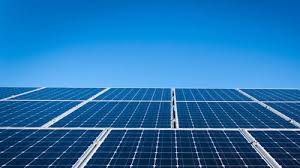The renting of a solar energy system for your home is a new, attractive twist to the idea of switching to renewable energy. With the adoption of a leasing or rental model for residential solar electric systems, an average homeowner can now go green at home as well as build a part-time, solar energy business. The following article outlines the step by step requirements needed to start solar energy business cost effectively.
Step 1 - Understanding the Solar Energy Business
Environmental entrepreneurs are charged with connecting with homeowners, educating them related to their alternative energy options, and providing them with the option to rent a solar electric system. By starting a solar energy business, a person becomes a Solar Project Management Consulting Services in India, making it possible for homeowners to adopt solar (PV) technology in a simple, investment-free way. No other solar rental program makes it so easy.
This type of renewable energy business entails no up-front fees to get involved but there are time investments related to educating yourself and in turn educating the American homeowner about residential solar electric systems. The rental of solar equipment is just getting started with much adoption and growth expected. Solar energy is now cost competitive with the utility prices and homeowners no longer have to make an upfront investment to switch to solar power. They can simply rent a system and perhaps build a solar energy business on the side.
To start a solar energy business, a person does not need to be a college graduate or a seasoned sales executive. All that is needed is the desire to make a difference and share the belief with others that solar power will make that difference.
Step 2 - Structuring of Your Solar Business
As a solar energy consultant, you are trained and supported by an experienced sales manager. The sales manager will support you in your initial days of solar energy industry education, sales cycle management, and how to effectively use the free sales tools. As you progress and begin to desire more responsibility, you can become a sales manager yourself by beginning to build your own marketing team.
Step 3 - Registering and Completing the Solar Energy Training
Registering by entering your information and signing up online is just the first step to working towards managing your own solar energy business. Training is the second required step in the process. This small business opportunity demands detailed knowledge of the solar energy industry.
You do not need to become an electrician or solar energy system installer but you should work to understand the difference between fossil fuels and renewable fuels, to understand how the electricity grid works, and to understand how residential solar energy works. You must be properly trained in solar energy topics and related technology so that you have the confidence to pass on this knowledge.
Training tools are available to assist you with the required testing. Training tools, testing, and ongoing support is all free. It is also important to continually build your knowledge of the renewable energy industry. This solar energy business requires no investment on your part but it does stress training and the use of training tools because accurate knowledge breaks down barriers.
Step 4 - Receiving Solar Energy Business Support
This solar energy business is centered upon ongoing support and growth. It is necessary for solar energy consultants to process solar system sales or referrals. There are free sales cycle management (CRM) tools included with this business opportunity. The sales aids make it very simple to complete the processing and help homeowners to rental a solar energy system.
These tools are provided to help build your solar energy business:
* One-on-one training from your sales manager,
* Training resources, books, brochures,
* Internal and external corporate websites,
* Help desk and knowledge base (both support and training),
* and much more.
The solar energy business explained here has a great mission. Its grassroots goal is to spread the use of clean, renewable solar electric power as simply and as rapidly as possible. This opportunity has eliminated as many obstacles as possible to both the rental of solar electric systems for home owners as well as to entrepreneurs wishing to start a solar energy business.
The overall job of a solar energy consultant is to become ambassadors for positive change in the World of renewable solar energy. Solar energy is vital to the U.S. economy, energy security, and the environment. There is a simple choice to do the right thing. By helping America to rethink solar electric power, you can start your own solar energy business in a very cost effective way.
For more details visit us @ https://www.acerenewtech.com/
Source: http://ezinearticles.com/1126555

Comments
Post a Comment